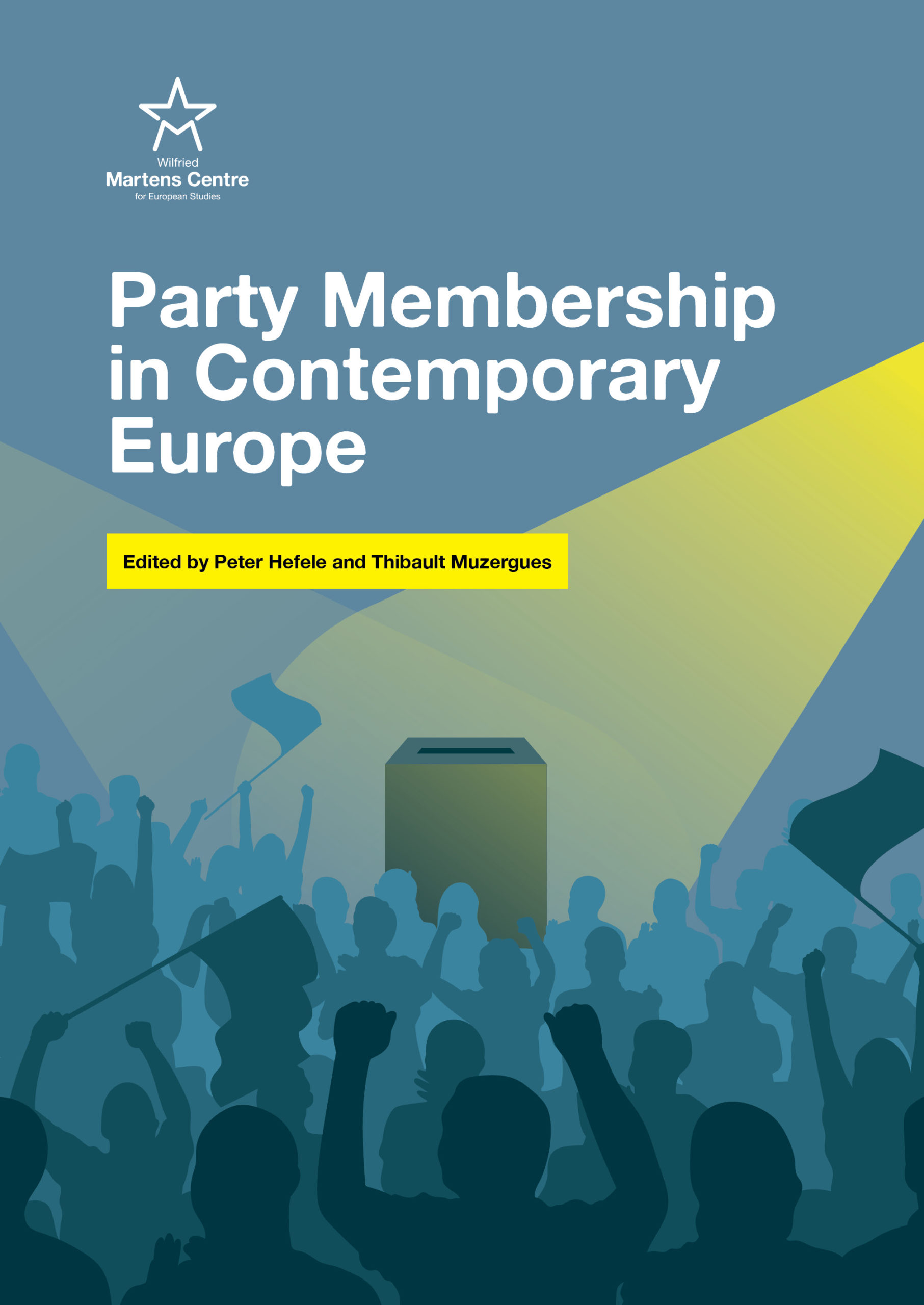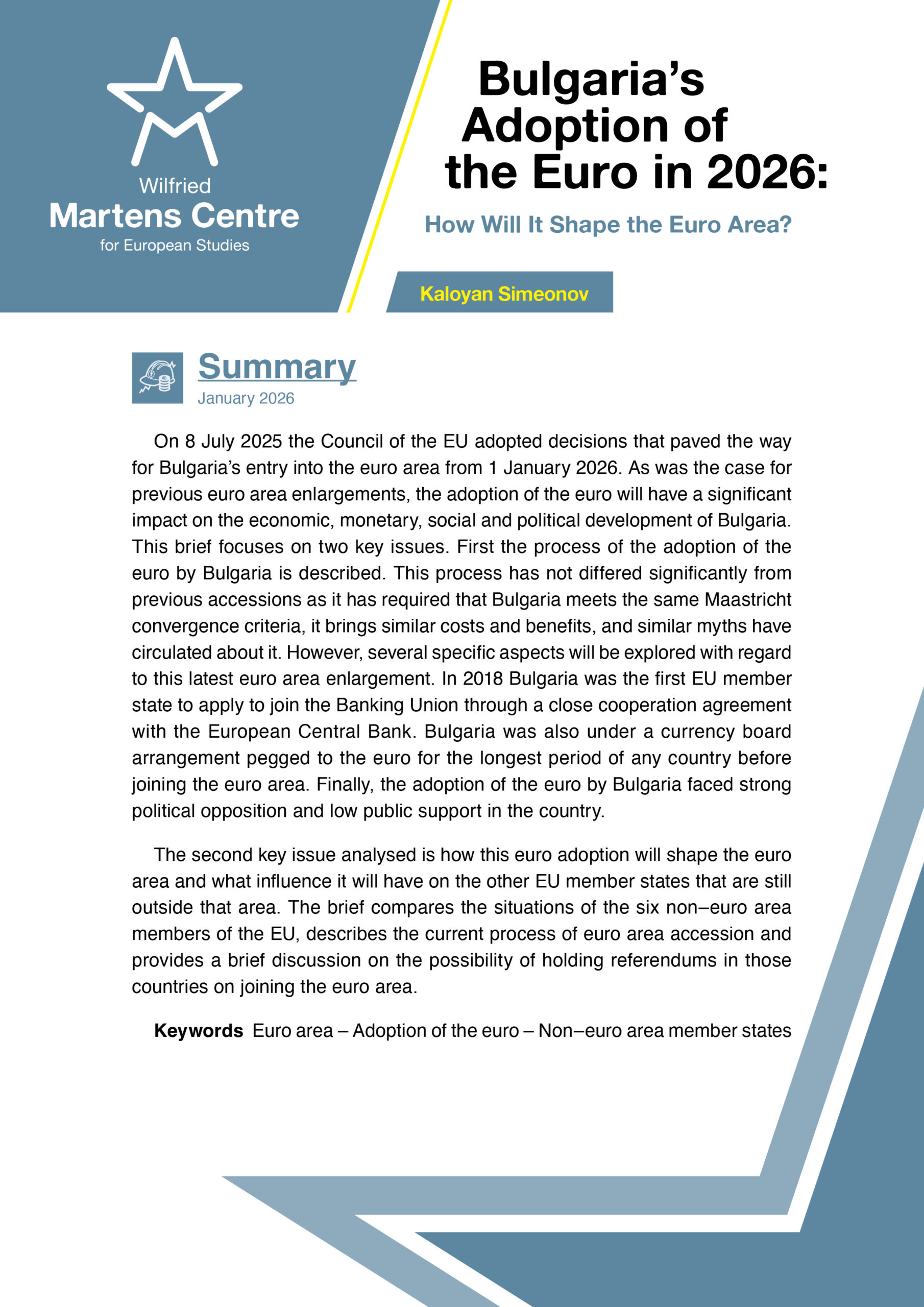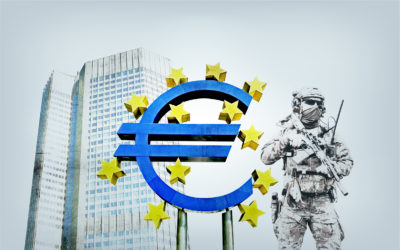Much ado about nothing? What Sinn Féin in power will mean for Ireland in the EU
11 February 2020
Although the final number of seats obtained by each political party won’t be finalized for several days, the results of the Irish election indicate a marked shift in Ireland’s staid political landscape. Dominated by two centrist political parties since the foundation of the state in 1922 – Fine Gael (EPP) and Fianna Fáil (Renew Europe) – the recent election marks a significant milestone in Irish politics.
Although Europe was almost entirely absent from the recent campaign, Sinn Féin (GUE/NGL) represents a clear challenge to Ireland’s traditional, pro-European stance at a policy and decision-making level. While Sinn Féin’s historic “anti-Europe” policy has moderated in recent years, this is mostly attributable to very high Irish public support for Brussels and to the EU’s support for Ireland during the Brexit process. However, Sinn Féin remains a deeply Eurosceptic party far removed from positions of influence in the European institutions. After a very disappointing European election campaign in 2019, Sinn Féin retains only one MEP in the European Parliament. Their 2020 election manifesto retains a commitment to “radically reform” the EU.
The policies of Sinn Féin in power – likely as an equal partner (almost) in coalition with the more centrist Fianna Fáil – sets an uncertain context for Ireland’s future relationship with the EU. In particular, there are three areas – the Eurozone, taxation and trade – where Sinn Féin’s priorities could seriously impact on Ireland’s traditional national consensus (and relationship with Brussels).
Sinn Féin’s policies regarding the Eurozone are copied from the standard hard left response to the global financial crisis starting in 2008. They are based around vague notions of ending “the Eurozone straitjacket” through flouting European fiscal rules and reforming the European Central Bank. The overall objective appears to be the “direct transfer of newly created money to governments so they can engage in green investment and by quantitative easing for the people”. These proposals highlight a party completely out of touch with both the realities of Brussels based decision making and the operational structure of the Eurozone (not to mention the pro-market economics which underpin it). They also evidence scant understanding with the complexities of Ireland’s existing public debt and its obligations under existing agreements.
It is in the areas of the Eurozone and Trade policy that Sinn Féin’s policies have the potential to seriously undermine Ireland’s position in Brussels
On taxation, Sinn Féin’s positions are more nuanced and not completely out of tune with the Brussels establishment or companies investing (or invested) in Ireland. Although, they call for the continuation of national vetoes on taxation matters in the European Council and the retention of the 12.5% Corporation Tax rate, they support global efforts (presumably at OECD level) to update the global tax system. Sinn Féin wants Ireland to adopt a more transparent approach to dealing with foreign multinationals including ending the appeal against the European Commission’s Apple ruling on alleged unlawful tax arrangements with Ireland.
In recent years Sinn Féin’s policies on the Irish economic model (and its attraction of FDI) has moderated considerably. As noted, they now support both national tax vetoes at EU level and Ireland’s present rate of Corporation Tax. Their focus lies more on their traditional wish to create a state agency “to support the growth of indigenous small businesses”. Sinn Féin’s policies, in this area, will continue the longstanding Irish consensus of advocating for national competence on tax matters (including Corporation Tax) while helping to alleviate some EU (predominantly French) concerns regarding the transparency of the Irish tax system.
On trade, Sinn Féin’s policies conflict directly with both EU objectives and traditional Irish policymaking. Their plan to veto the EU-Canada Comprehensive Economic and Trade Agreement (CETA) follows the example of other hard-left movements throughout Europe. As with their disjointed Eurozone policies, their promise to promote “fair global trade rules and policies” seems to deliberately ignore the fact that the EU has emerged as the global leader in delivering transparent and accountable trade deals since 2014. Sinn Féin’s stance could also prove problematic given the ongoing negotiations between the EU-UK on future trading arrangements given that it’s Sinn Féin’s raison d’être to achieve a United Ireland.
This brief analysis highlights that it is in the areas of the Eurozone and Trade policy that Sinn Féin’s policies have the potential to seriously undermine Ireland’s position in Brussels. However, a number of factors mitigate these dangers.
First, Sinn Féin will, at best, form just half a coalition government. Its ability to deliver its more extreme policy pledges will be significantly constrained by the political realities. Second, and as noted, Sinn Féin’s overarching objectives are national – namely trying to attain a United Ireland and increasing public involvement in housing to remedy the current domestic crisis – so its primary gaze will be fixed in places other than Brussels. Third, Ireland remains a very pro-EU country and Sinn Féin understands this explicitly. This limits their potential to adopt anti-Brussels positions consistently. Fourth, the recent example of Syriza in Greece highlights the real constraints imposed on radical left parties that assume political power. The compromise of power will challenge directly Sinn Féin’s mantra of being the radical alternative.
ENJOYING THIS CONTENT?




















